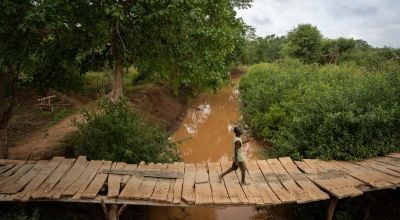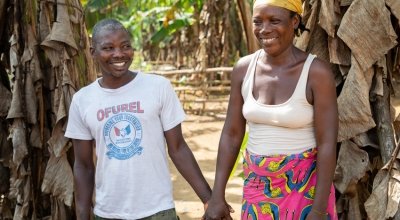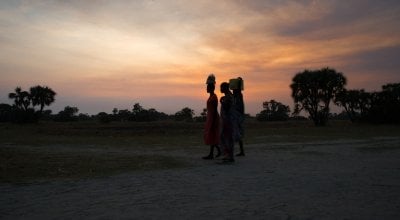
Read our 2023 annual report

Knowledge Hub
One family’s struggle to survive in South Sudan
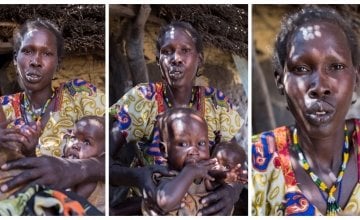
In the context of continued conflict and a looming food crisis, mere survival is challenging for many in South Sudan. On a recent trip to the world’s newest nation, Concern’s Kieran McConville spoke to mother of four, Atuil Chok, about her struggle to feed her young family.
Over two years ago Atuil Chok’s husband left the family home in search of work in another part of the country. Atuil Chok was left alone to care for her six children – the eldest was nine and the youngest were new-born twins, Anger and Chan. She struggled desperately to make ends meet. With no proper food, her breast milk dried up and her youngest twins became rapidly malnourished. “I tried to cultivate crops for food, but they were a failure. We had almost nothing to eat,” she says.
When the struggle became too much, Atuil decided to take her six children and make the journey to her parent’s home in Rumpaleu, near the town of Aweil in the north west of South Sudan. Things there weren’t much better, but at least she had the support of her family.
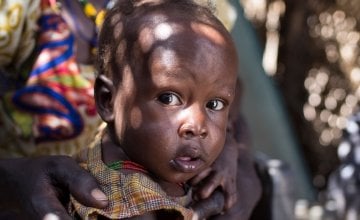
Community nutrition volunteers
It was in Rumpaleu that Atuil and the twins were screened by a Concern community nutrition volunteer. The Concern volunteers are spread out across the Aweil region, conducting screenings on malnourished children and referring them to a nearby nutrition clinic.
“We visit households and carry out screening of children who may have fallen outside the health system,” said Monica Mawien, a member of the Concern nutrition team.
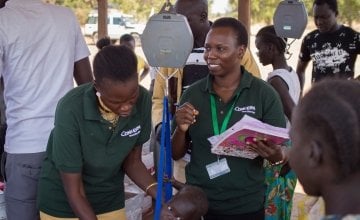
Outpatient therapeutic programme
When the community nutrition volunteer discovered the malnourished twins, Atuil was urged to bring them to the outpatient therapeutic programme which Concern runs at the health centre in Maduany. At the centre, children under five are assessed and most cases are enrolled in the programme. If the case is acute, children are referred to the nearest stabilisation centre for more intensive treatment.
Educating mothers, improving child health
The outpatient therapeutic programme, which is funded by European Union Humanitarian Aid, educates mothers on best practice for child nutrition and hygiene, and mothers are supplied with a week’s worth of therapeutic food – a high nutrient peanut paste with added vitamins. Parents and children are encouraged to return once a week to monitor the child’s condition. Most children are released after four to six weeks and transferred to the target supplementary feeding programme for children with moderate malnutrition.
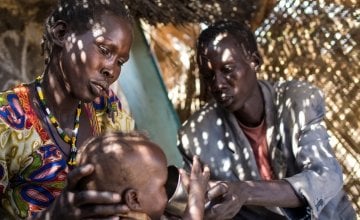
Unfortunately Anger and Chan did not initially progress well from their state of acute malnutrition. It emerged that Atuil, in her desperation, was sharing the therapeutic food amongst her other children, in order to stave off hunger. When this was discovered, Concern staff met with Atuil again to offer additional support and encouragement. Thankfully the children are now back on the programme and progressing well.
An uncertain future
Atuil’s husband, Adim, has returned to the family and is now trying to find ways to support them. His resources are few, though, and his most immediate coping strategy is to cut down some nearby trees and turn them into charcoal for selling. The future is uncertain for Atuil, Adim and their family and with an estimated 4.6 million people in South Sudan predicted to be severely food insecure between now and April 2017, the situation is unlikely to improve anytime soon.
Support us
Thank you for helping us to stand with the people affected by crisis in South Sudan and the most vulnerable in 27 other countries.



